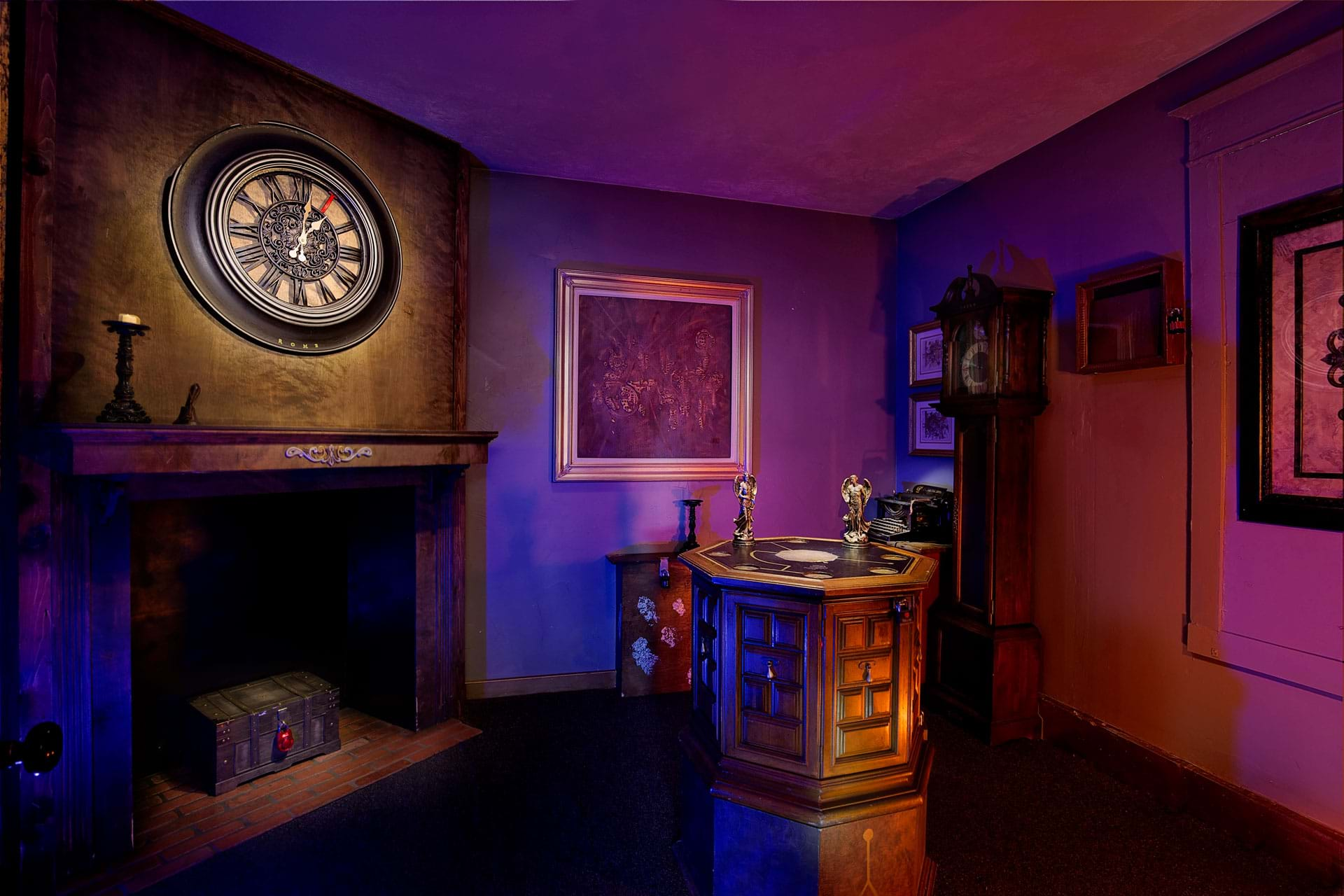Best Escape Room Experience-- Exciting Gamings and Puzzles for Teams
Best Escape Room Experience-- Exciting Gamings and Puzzles for Teams
Blog Article
Team Strategies: Just How to Team up Efficiently in a Retreat Area
Teams should actively listen to each participant's understandings, assign functions that line up with private strengths, and preserve routine check-ins to make sure focus and protect against redundancy. By fostering a setting that values cohesion and versatility, teams can considerably heighten their effectiveness and success prices.
Establish Clear Interaction

To promote clear communication, it is crucial to designate a main factor of contact for info circulation. Brief, focused updates from each group member can keep the team informed without frustrating them with information.

Assign Duties Tactically
While clear communication sets the foundation for reliable teamwork, assigning functions purposefully makes sure that each staff member's strengths are used effectively. In a retreat area scenario, the time-sensitive and intricate nature of challenges demands an efficient approach to job delegation. By identifying and leveraging private proficiencies, groups can optimize their analytical capacities and boost overall efficiency.
First, assess the unique skills and features of each participant. A person with a keen eye for detail may succeed in finding concealed things, while a logical thinker might be much better suited to resolving problems. It's equally crucial to have a leader who can manage progression, manage the timeline, and make definitive telephone calls when required. This duty commonly requires solid organizational and social skills.
Second, ensure that duties are versatile and versatile. As new difficulties emerge, the team must have the ability to pivot, reapportioning tasks as required. This adaptability aids preserve energy and stops traffic jams that could take place due to inflexible duty tasks.
Ultimately, a tactical approach to duty job not only makes the most of the strengths of each employee yet likewise fosters a natural atmosphere, driving the team towards an effective getaway.
Make Use Of Diverse Skills
Identifying and taking advantage of the varied abilities within your team can significantly boost your efficiency in an escape space. Each staff member brings one-of-a-kind strengths to the table, and properly leveraging these capabilities can expedite analytical and enhance general effectiveness. As an example, a staff member with solid logical abilities might succeed at figuring out complex codes or patterns, while an additional with eager observational capacities may swiftly detect hidden clues that could ignore.
Effective communication is essential to using these diverse skills. Motivate employee to articulate their insights and ideas immediately, ensuring that all possible solutions are thought about. This inclusive approach fosters a dynamic atmosphere where creative thinking and crucial thinking can prosper. In addition, designating tasks that align with each member's toughness can stop bottlenecks and make certain that progression is continuous.
Moreover, variety in abilities often translates to variety in believing designs, which is important in an escape space setup. While some difficulties might need sensible reasoning and precision, others could take advantage of creative and lateral reasoning. By recognizing and leveraging this variety, teams can address a wider series of difficulties much more effectively, therefore boosting their opportunities internet of an effective escape.
Manage Time Efficiently

First, allot preliminary minutes for a fast survey of the space. Recognize visible problems and separate tasks based on group participants' strengths, making sure that no one is still. Establish inner time checkpoints to examine progress periodically; for example, purpose to have half the problems addressed by the mid-point of the game. This technique can assist keep the company website group focused and stop time from sliding away unnoticed.
Furthermore, prevent one-track mind. If a problem is taking as well long, turn staff member or go on to another obstacle, returning later with fresh viewpoints. Communication is extremely important-- keep every person upgraded on resolved challenges and remaining jobs to avoid repetitive initiatives.
Last but not least, use any hints or clues sparingly but strategically - best escape room. Recognizing when to request aid can conserve important time. By adhering to these time administration principles, groups can substantially boost their possibilities of an effective and delightful escape space experience
Debrief and Mirror
Reflection is an essential facet of team advancement and renovation in the context of escape rooms. As soon as the challenge is completed, whether effectively or otherwise, it is critical for the team to participate in a structured debriefing session. This process allows team members to examine their efficiency, recognize staminas, and identify locations for renovation.
Start the debrief by discussing what went well. Highlight certain circumstances of reliable communication, analytic, and cooperation. Identifying these favorable behaviors enhances them visit the website and encourages their repetition in future difficulties.
Talk about moments of complication, miscommunication, or inefficient methods. Motivate an open and constructive dialogue where team members can share their viewpoints without anxiety of objection.
Verdict
In final thought, effective collaboration in a retreat space is asserted upon clear interaction, tactical duty assignments, the effective usage of varied skills, and skillful time monitoring. By creating a cohesive and flexible group setting, the likelihood of effectively addressing problems and attaining the objective of leaving the area is significantly enhanced.
Report this page